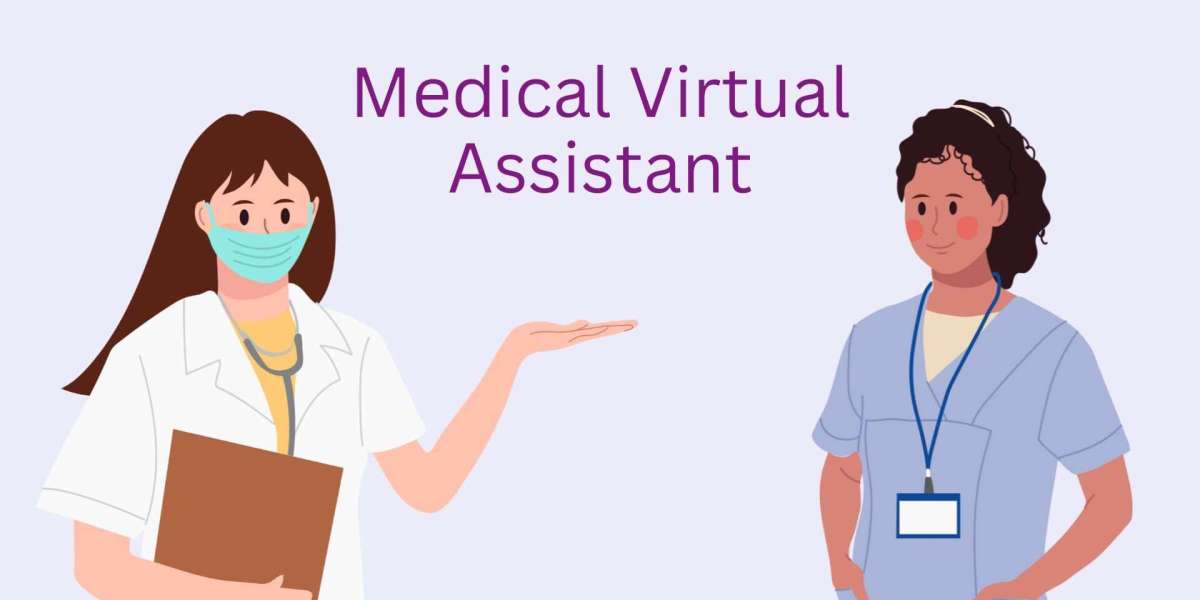Boost Efficiency with Virtual Healthcare Assistants
Healthcare professionals today face mounting pressure: more patients, complex documentation, rising operational costs, and tighter regulations. In the midst of this, physicians and clinic managers are seeking new ways to streamline processes and regain valuable time for patient care. One of the most impactful solutions? Hiring a virtual medical assistant.
Whether you're running a busy private practice, managing a telehealth service, or overseeing a multispecialty clinic, virtual medical assistant services offer significant advantages. These professionals work remotely, supporting your day-to-day operations with tasks ranging from scheduling and insurance verification to medical transcription and follow-up calls.
In this blog, we’ll break down how virtual healthcare assistants are transforming the industry and how your practice can benefit from their skills.
What Is a Virtual Medical Assistant?
A virtual medical assistant is a trained remote professional who performs a variety of administrative and clinical support tasks in a healthcare setting. These assistants are not general virtual assistants—they are trained specifically in healthcare workflows, HIPAA compliance, medical terminology, and electronic health records (EHR) systems.
With the help of secure digital tools, a medical virtual assistant can seamlessly integrate with your team, offering support across time zones and even after business hours. They are equipped to work with EHRs, handle patient calls, perform follow-ups, and support medical billing operations, all from a remote location.
Why Virtual Medical Assistant Services Are in High Demand
The growth of virtual medical assistant services is fueled by several pressing industry challenges:
Physician burnout from excessive administrative duties
Labor shortages in healthcare administration
Cost constraints in hiring and retaining in-house staff
Telemedicine growth, demanding remote-ready support
Increased patient expectations for fast, digital-first communication
The pandemic accelerated the adoption of remote services across industries. Healthcare was no exception. Now, practices are discovering that healthcare virtual assistants offer long-term value, even in a post-pandemic world.
Key Benefits of Hiring a Virtual Medical Assistant
Reduces Administrative Overload
Providers and staff spend hours every day on repetitive tasks like scheduling, data entry, and insurance coordination. A virtual health assistant can handle these tasks efficiently, giving your team more time to focus on patient care.
Lowers Operating Costs
In-house employees require physical workspace, benefits, training, and equipment. With virtual medical assistant services, you only pay for what you need—saving thousands annually without compromising service quality.
Improves Workflow and Efficiency
A medical virtual assistant can organize and prioritize tasks, manage patient communications, and ensure that documentation is up-to-date—all in real time. This leads to shorter patient wait times, fewer errors, and smoother workflows.
Enhances Patient Experience
A virtual assistant can handle appointment confirmations, reminders, and follow-ups, ensuring every patient feels cared for before and after their visit. This increases loyalty and satisfaction while reducing no-shows.
Scalable and Flexible
Need assistance for only a few hours a day? Or 24/7 coverage? Virtual medical assistant services can scale to match your clinic’s volume without the headache of hiring or layoffs.
Services of Virtual Healthcare Assistants
Here’s what a virtual medical assistant can do for your practice:
Appointment scheduling and calendar management
EHR data entry and patient chart updates
Medical transcription and scribing
Insurance verification and eligibility checks
Billing and coding support
Prescription refill coordination
Patient follow-up and feedback collection
Telemedicine support and setup
Live chat or phone call handling
Digital intake form management
These professionals free your in-house staff from repetitive tasks, allowing them to focus on high-touch services that directly impact patient care.
Ideal Use Cases for Virtual Medical Assistant Services
Virtual medical assistants are versatile and fit seamlessly into a wide variety of healthcare environments, including:
General and Family Practices
Mental Health Clinics and Teletherapy Providers
Chiropractic Offices
Dental and Orthodontic Clinics
Cardiology and Oncology Practices
Urgent Care and Walk-In Clinics
Physical Therapy and Rehab Centers
Nutritionists and Wellness Coaches
Whether you’re just starting out or managing multiple locations, a healthcare virtual assistant can adapt to your workflow and help you grow efficiently.
How to Get Started with a Virtual Assistant in Healthcare
1. Assess Your Needs
Start by listing the administrative tasks that take up your team’s time. Choose tasks that don’t require physical presence and are repetitive or time-sensitive.
2. Choose a Reputable Provider
Opt for a provider that specializes in virtual medical assistant services, not just generic virtual staffing. Check for healthcare experience, HIPAA compliance, and client reviews.
3. Onboard Like a Team Member
Give your virtual assistant access to your tools, communication channels, and systems. Provide training and SOPs to ensure consistency.
4. Set KPIs and Track Performance
Define clear goals (response time, task completion, appointment accuracy) and evaluate regularly. The right assistant will continuously improve and adapt.
Client Success Stories
⭐⭐⭐⭐⭐ Dr. Stephanie Morris, Pediatrics – Georgia
"We were overwhelmed with admin tasks until we brought in a virtual medical assistant. She handles scheduling, intake, and reminders—we now run smoother than ever."
⭐⭐⭐⭐☆ David Green, Clinic Manager – Oregon
"Our virtual healthcare assistant reduced our call volume by 40% and improved follow-up efficiency. Patients are more satisfied, and staff stress is lower."
⭐⭐⭐⭐⭐ Dr. Tarek Ismail, Cardiologist – Michigan
"Billing errors used to be a major issue. With the help of a trained medical virtual assistant, our claim rejections dropped by 30%."
Frequently Asked Questions (FAQs)
1. Are virtual medical assistants trained in healthcare-specific software?
Yes, most are familiar with tools like Epic, Kareo, eClinicalWorks, Athenahealth, and other EHR systems.
2. How secure is patient data with a virtual assistant?
Reputable services are HIPAA-compliant and use encrypted, secure platforms to ensure patient privacy and data safety.
3. Can a virtual assistant call patients on our behalf?
Absolutely. Virtual medical assistants can make outbound calls for appointment reminders, follow-ups, and even wellness checks.
4. How quickly can a VMA start working with us?
Depending on the provider, onboarding can take as little as 3–7 days.
5. Do I need to provide software or tools?
In most cases, your VMA will work with your existing systems. However, some services offer bundled tools or EHR integrations if needed.








